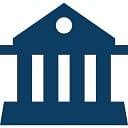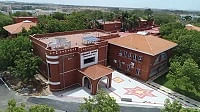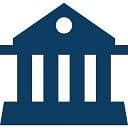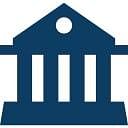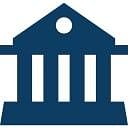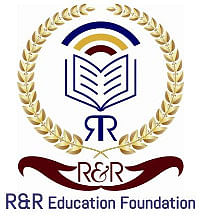BCA Distance Education Syllabus and Subjects

Distance BCA syllabus will ensure a deep understanding of analytical skills, including research involved with information systems and technologies. Also, the program trains aspirants for graduate study in the area, such as the master of computer applications (MCA) program. Some of the popular Distance BCA subjects taught are 'C' programming, elements of statistics, software engineering, etc.
Semester Wise Distance BCA Syllabus
The Distance BCA education syllabus is divided into six semesters over three years. Throughout the three years, aspirants are taught all about the different facets of computer application. There's also the advantage of learning from home as this is a distance learning program. Some programs offer in this course are business communication, organizational behaviour, cost accounting, etc. Listed below is the semester wise distribution of the Distance BCA Syllabus:
|
Semester Ⅰ |
Semester Ⅱ |
|
Business Communication |
Organizational Behaviour |
|
Programming Principles and Algorithms |
Elements of Statistics |
Principles of Management |
File Structure and Database Concepts |
|
Computer Fundamental and Office Automation |
Cost Accounting |
Business Accounting |
Computer Laboratory and Practical Work |
Computer Laboratory and Practical Work |
‘C’ Programming |
|
Semester Ⅲ |
Semester Ⅳ |
‘C’ Programming |
Networking |
|
Software Engineering |
Visual Basic |
|
Data Structure using C |
Inventory Management |
|
RDBMS |
Human Resource Management |
Computer Laboratory and Practical Work |
Object-Oriented Programming using C++ |
Numerical Methods |
Computer Laboratory and Practical Work |
|
Semester Ⅴ |
Semester Ⅵ |
NET Frameworks |
E-Commerce |
Internet Programming and Cyber Law |
Multimedia Systems |
Core Java |
Advance Java |
Project work |
Project Work |
|
Elective |
Elective |
|
Microprocessor Architecture and programming |
Data Communications & Computer Networks |
Distance BCA Subjects
Subjects taught in Distance BCA are designed to give a thorough and practical understanding of computer applications. Along with theoretical subjects, there are also lab subjects that give a hands-on experience working with the computer application. Listed below are some of those subjects:
Distance BCA Core Subjects:
- Mobile Application Development
- Web Design & Mobile Application Development
- Web Design and Technology
- Software Engineering
- Fundamentals of Computer and IT
- Programming in C
- Basic Mathematics
- Communication Skills
Distance BCA Elective Subjects:
- Advanced Computer Networks
- Cloud Computing
- Python programming
- Big Data
- Artificial Intelligence
- E-Commerce
- Customer Relationship Management
- Cyber Security
- Software Project Management
- Supply Chain Management
- Knowledge Management
Distance BCA Lab Subjects:
- Web Design & Mobile Application Development
- Java Programming
- Database Management Systems
- Data Structures & Algorithm
- Programming in C
Distance BCA Course Structure
Distance BCA education subjects and syllabus focuses on giving a holistic understanding of computers. As a professional course, a Bachelor of Computer Applications degree means that an aspirant has consumed the required ingredients to pursue a career in computers and technology. This would not necessitate an advanced engineering degree. There are electives to choose from, lab subjects which give hands-on training in the course structure. Listed below are some important aspects of the course structure:
- Ⅵ Semesters
- Core & Elective Subjects
- Lab Subjects
- Projects
- Viva
- Presentations
- Assignments
- Compulsory Internships
Distance BCA Teaching Methodology and Techniques
The Distance BCA syllabus gives scope for having an exciting teaching methodology. This course's teaching methodology is different from other courses as this is a distance learning program. So the program is designed in such a way that learning can be shared online. This involves weekly tests and making the online teaching interactive to make up for no physical classes. It's easier for students to get distracted in online classes than in physical classes. Listed below are some teaching methodology applied in this course:
- Discussions
- Weekly Test
- Practical Learning
- Problem Based Teaching
- Projects
- Group Presentations
Distance BCA Projects
Projects are a very important aspect of any course but especially if it's a distance program. This is the only true measure of making sure that an aspirant truly understands the concepts taught. The good thing about this course is that its scope is so wide that there are many interesting project opportunities. Some of these project ideas are listed below:
- Android task monitoring
- Sentiment analysis for product rating
- Fingerprint-based ATM system
- Advanced employee management system
- Image encryption
- Fingerprint voting system
- Weather forecasting system.
- Android local train ticketing system
Distance BCA Reference Books
Reference books for the Distance BCA program are available all over the internet and in any book store. The top college already uses most of these reference books mentioned below in the country for their teachings. It is highly recommended that an aspirant read these books if they are truly passionate about this course as these books give an in-depth and holistic knowledge about the distance BCA course. The books are:
|
Books |
Authors |
|
Computer Fundamentals |
B.Ram |
|
UNIX, concepts and applications |
Sumitabha Das |
|
An Introduction to Database Systems |
Christopher J. Date |
|
Fundamentals of Computers |
V. Rajaraman |
|
The C Programming Language |
Brian Kernighan |
|
Fundamentals of Database Systems |
Ramez Elmasri |
|
Management Information System |
Davis, Olson |

